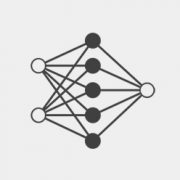This Privacy Policy outlines how the Swasthya Nagaram application collects, uses, stores, shares, and protects personal health data. The App supports population focused TB Screening service based projects in India. The application is built to be used by service delivery personnel engaged under such projects. The Application ownership is jointly and severally vested with The International Union Against Tuberculosis and Lung Diseases and Artificial Intelligence unit of Lords Education and Health Society (LEHS) under their brand name ‘Wadhwani AI’ (hereinafter referred to as ‘The Organization’, ‘we’ or ‘us’). This Application is operated and managed by LEHS.
This policy includes what information we collect from users of our Application (a “user”, “you”, or “your”), including information that may be used to personally identify you (“Personal Information”) and how we use it. We encourage you to read the details below. By using the application you expressly agree to have read, understood and consent to be bound by this Privacy Policy. We will be the controller of your personal data provided to, or collected for, or processed in connection with our services.
The Swasthya Nagaram application is intended for use as part of a public health initiative focused on individuals aged 18 years and above who are being screened for Tuberculosis (TB) under the project. The information collected through the application is used solely for public health purposes and is handled in accordance with applicable data protection and ethical standards.
Demographics, TB related Health Information, cough sounds, TB screening services and linkage to public health services.
The information collected will not be used for any purpose other than those mentioned in point 1,2 and 3.

© 2025 Wadhwani AI
ROLES AND RESPONSIBILITIES
An ML Engineer at Wadhwani AI will be responsible for building robust machine learning solutions to problems of societal importance; usually under the guidance of senior ML scientists, and in collaboration with dedicated software engineers. To our partners, a Wadhwani AI solution is generally a decision making tool that requires some piece of data to engage. It will be your responsibility to ensure that the information provided using that piece of data is sound. This not only requires robust learned models, but pipelines over which those models can be built, tweaked, tested, and monitored. The following subsections provide details from the perspective of solution design:
Early stage of proof of concept (PoC)
Late PoC
This is early to mid-stage of AI product development
Post PoC
Responsibilities during production deployment
We realize this list is broad and extensive. While the ideal candidate has some exposure to each of these topics, we also envision great candidates being experts at some subset. If either of those cases happens to be you, please apply.
DESIRED QUALIFICATIONS
Master’s degree or above in a STEM field. Several years of experience getting their hands dirty applying their craft.
Programming

ROLES AND RESPONSIBILITIES
As an ML Scientist at Wadhwani AI, you will be responsible for building robust machine learning solutions to problems of societal importance, usually under the guidance of senior ML scientists. You will participate in translating a problem in the social sector to a well-defined AI problem, in the development and execution of algorithms and solutions to the problem, in the successful and scaled deployment of the AI solution, and in defining appropriate metrics to evaluate the effectiveness of the deployed solution.
In order to apply machine learning for social good, you will need to understand user challenges and their context, curate and transform data, train and validate models, run simulations, and broadly derive insights from data. In doing so, you will work in cross-functional teams spanning ML modeling, engineering, product, and domain experts. You will also interface with social sector organizations as appropriate.
REQUIREMENTS
Associate ML scientists will have a strong academic background in a quantitative field (see below) at the Bachelor’s or Master’s level, with project experience in applied machine learning. They will possess demonstrable skills in coding, data mining and analysis, and building and implementing ML or statistical models. Where needed, they will have to learn and adapt to the requirements imposed by real-life, scaled deployments.
Candidates should have excellent communication skills and a willingness to adapt to the challenges of doing applied work for social good.
DESIRED QUALIFICATIONS
